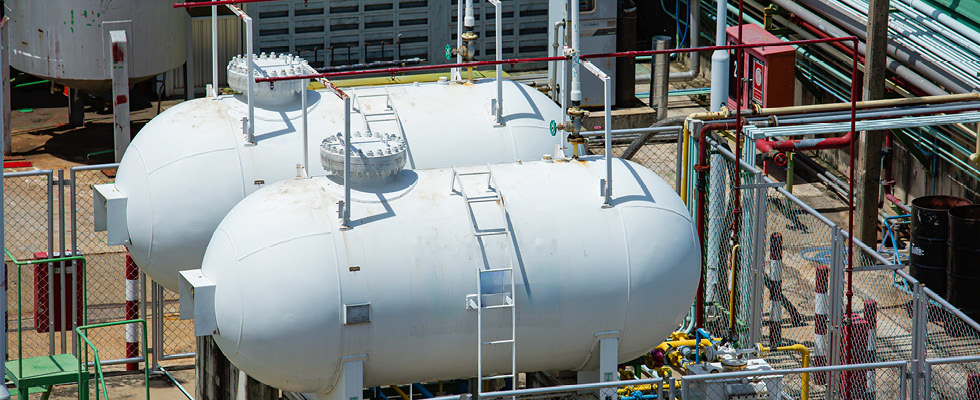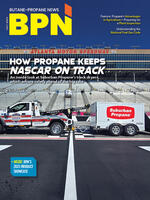
If your company operates a bulk plant or an industrial plant, it is likely to be on an inspection plan by the state or county entity responsible for safety inspections. To be clear, a bulk plant is where propane is delivered, stored and loaded for delivery to customers. An industrial plant is where propane is delivered and stored for later use on-site.
At the North Carolina Department of Agriculture and Consumer Services, we have a goal of a routine bulk or industrial plant inspection at every location at least once a year. We also perform follow-up inspections, if violations are found, to be sure they are corrected. (Note: Any reference to propane also includes other liquefied petroleum gases.)
There are states that have little or no inspection activity and some that are so short-staffed that what few inspections they perform are erratic. Sometimes we fall into the erratic classification, as challenges from retirements, job changes, HR delays in processing vacancies, illness and injury have affected inspector availability.
Site safety can suffer when inspecting for compliance is overlooked. Here are some methods to help you keep your sites working well so they can pass an inspection, no matter how regular or irregular they are. A side benefit, which is just as important, is that they will be safer than ones not checked.
Develop Maintenance Plans & Stick to Them
First, have operation and maintenance plans in place, and operate and maintain your site as they prescribe. A plant that is well operated and maintained on a reasonable maintenance schedule probably has few-to-no hardware violations. Valves are “exercised” regularly, emergency shutdown systems are checked just about daily, gates are opened and closed daily, and malfunctions are quickly noticed and corrected. Documentation of these maintenance activities is complete and kept up to date.
On the other hand, sites that don’t have operation and maintenance plans, and are operated by staff interested only in getting in and out as quickly as possible, probably have many problems. These include but are not limited to: valves that refuse to close, emergency shutdown systems that do not operate reliably for a variety of reasons, rusty and corroded tanks and piping, and fences that do not provide security.
Take Care of Your Hardware
Next, practice good housekeeping. Keep combustible materials (wooden pallets, methanol containers and dispensers, etc.) at least 10 feet from propane containers. Vegetation is generally not considered combustible material, but check with your authority having jurisdiction (AHJ). Keep bollards or guidance devices (curbing, painted lines, fences, etc.) protecting tanks in place and well maintained. Transport trailers can wear paths that clearly show they are approaching too closely to tanks. Some bulk tanks have scrapes and gouges at about the height of transport fittings.
Take care of nameplates on these expensive tanks. Depending on your AHJ, if a tank loses its nameplate, it must be taken out of service, or it may remain in service at that site only if it has been in continuous use and inspected. There may also be an option for obtaining a replacement nameplate if you have documentation (manufacturer, serial number, National Board number, A-1 data sheet). Again, check with your AHJ.
Implement & Document Training
Switching topics to operations, be sure all your employees are properly trained and the documentation for that training is available to inspectors. We have some violations that generate penalties on the first time recording them. Most violations get a notice on the first, a warning on the second and a penalty on the third and subsequent findings. The first-time penalties are mostly limited to the inspector seeing an employee doing something wrong. That’s usually a willful violation of a fuel transfer requirement (especially blocking open an emergency shutoff valve or internal valve), failure to use wheel stops, having smoking or other burning materials, failing to properly check grill cylinders in the filling room before filling them, etc.
Our inspectors have inspection forms to guide them as they perform various types of inspections — including bulk plants, dispensing sites and bobtails — and a miscellaneous form for domestic sites, cylinders in buildings, cylinder exchange cabinets, observed fuel transfer not associated with a bulk plant or dispensing site, and a couple others. Each inspection item includes a reference to the applicable code requirement. The listing is not exhaustive. We have an “Other” item for something found but not on the list. If you use this list regularly to check your site or to quickly check it right before an announced inspection, it may save you from having violations. You can find this list at ncagr.gov/divisions/standards/std-bulkplantinspitems/open. Our goal is to have a violation-free (also read as “safe”) site inspection.
Keep in mind that industrial plants have most of the same requirements as bulk plants. They will not have bobtail loading bulkheads, but they may have cylinder filling for forklift cylinders. Responsibility for violations found at these sites will depend on if the site owns the tank and equipment or if the propane company leases it to the site.
Combat Safety Neglect
Neglect, either by the dealer or by the inspectors, can cause many surprising violations. We have information from various states about disrepair of sites where inspectors haven’t visited for a long time — or ever. Usually, the violations involved valves that would not close, emergency shutdown systems that didn’t work, severely corroded tanks and fences down.
We had a situation for a while where an inspector wasn’t performing bulk plant inspections for a few years because of a combination of a special project concerning improperly modified domestic tanks, some workman’s compensation time for him, and finally his retirement and the time it took to hire a new inspector. When a new inspector started, he found many violations of the type reported in other states for neglected sites. It took the new inspector a long time to perform the inspections at each of these sites. It took much less time at sites that had good housekeeping practices along with the operation and maintenance procedures.
If you know you are operating a site that has equipment for routine and emergency operations that doesn’t work or has security problems and you don’t fix them, then you are willfully putting your employees and the nearby public at risk. If you look the other way when employees perform their activities in violation of requirements, you are enabling them to do wrong and could be an accomplice when incidents happen.


